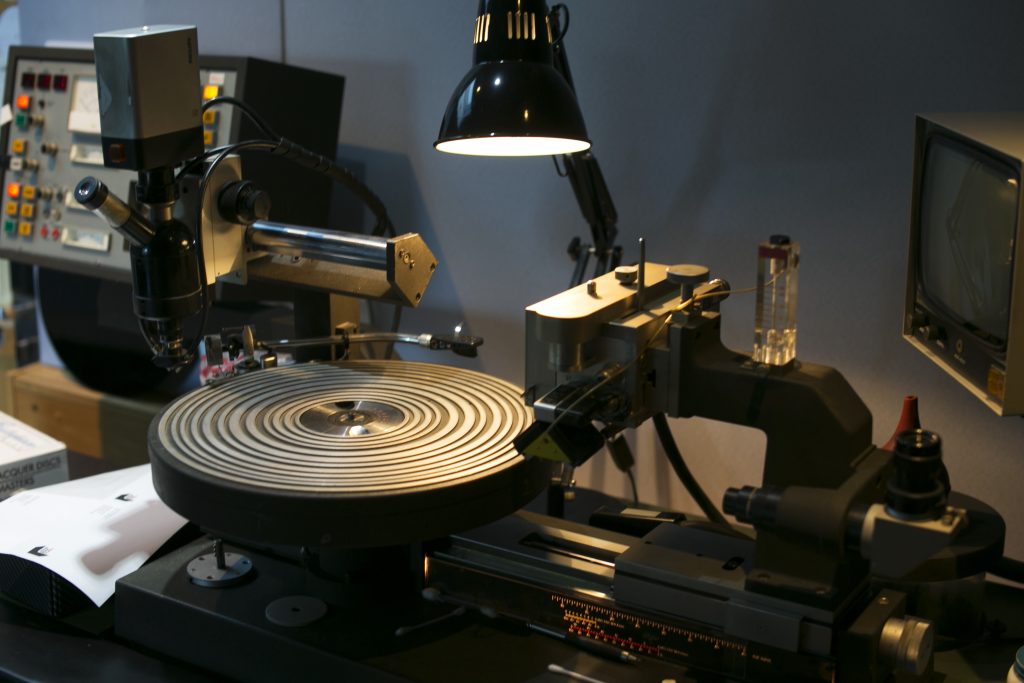Abbey Road has been cutting discs on-site since legendary engineer Alan Blumlein invented the custom cutting head in 1931.
Alan Blumlein pioneered explorations in the creation of stereo sound, sound recording and many telecommunications devices and his first invention was the moving coil cutting lathe, designed to replace Western Electric Corporation’s older model. Before Blumlein’s invention, a large royalty fee was paid to Western Electric for each record released. Naturally EMI management wanted to put a stop to it.
In the image above you can see Alan Blumlein’s moving coil wax cutting machine. The wax cutting process was carried out in rooms next to each studio and stayed this way for more than three decades.
The basic process of cutting vinyl is to get the master tape onto the disc with as fair a representation as you can, so the record can sound as close as it can to the master tape. Disc cutting is still just as prevalent today at Abbey Road Studios, where their four trusty Neumann VMS 80s carry out the responsibilities. One of the four lathes has also been modified for half-speed mastering, which is used by mastering engineer Miles Showell.
On the topic, Miles explains how these lathes have stayed relatively unchanged since the ‘80s:
“No one’s made a new lathe for 35 years since the mid-80s. The latest one they made was Neumann VMS-80. It was revolutionary when it came out in the way that the groove spacing computer can work out the shape and size of the grooves and shoe horns everything close together. Although that had been done previously it was a lot more steam-powered, this was very high-tech for its time.”

Watch mastering engineers Miles Showell and Geoff Pesche demonstrate the process of cutting vinyl at Abbey Road.
Due to the strong popularity of these lathes, Abbey Road Studios teamed up with Waves Audio in 2016 to create the Abbey Road Vinyl plugin, to as faithfully as possible, reproduce every stage of the vinyl production and playback process. You can choose between the sound of a pure acetate (lacquer) cut or the print master vinyl pressing from the factory, play the records on two distinct turntable types with a choice of three classic cartridges, and even add the EMI TG12410 mastering console on the path into the vinyl lathe.
You can also add vinyl noise and crackle, apply a gradual slow-down/stop turntable effect, and add wow and flutter effects for extra analog warmth. Take a look here.
Want to discover more of Abbey Road Studios’ legendary gear? Recap the series so far on our blog, or head back next week as we reveal another piece from their rich treasure chest.